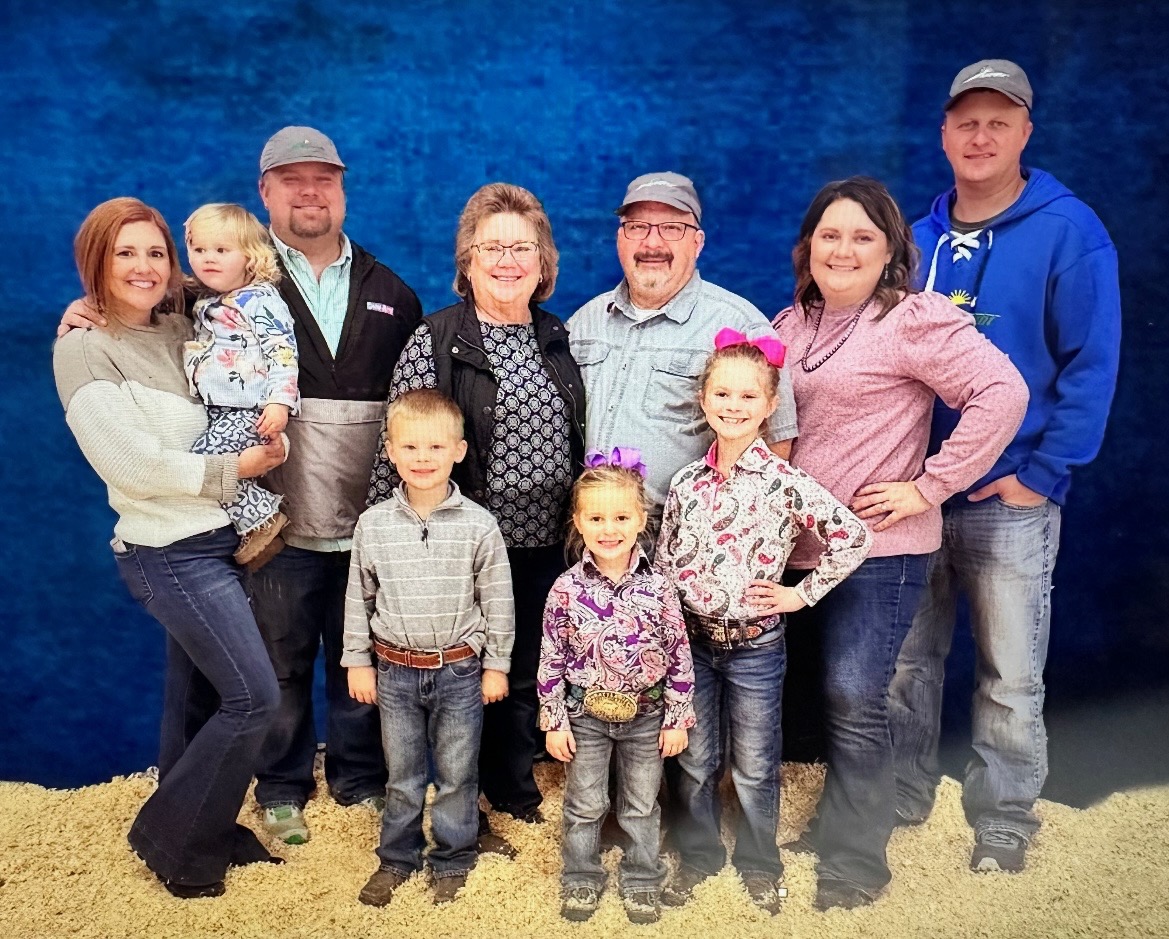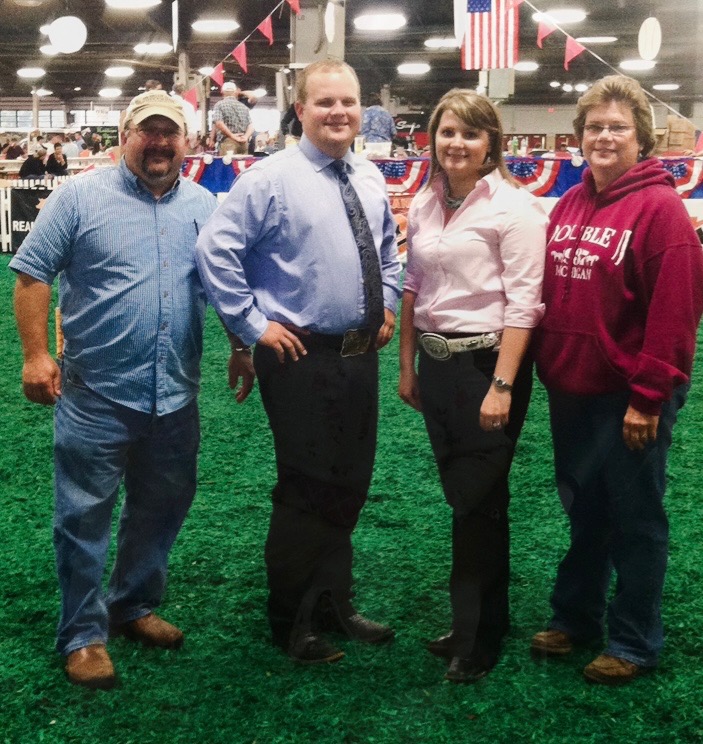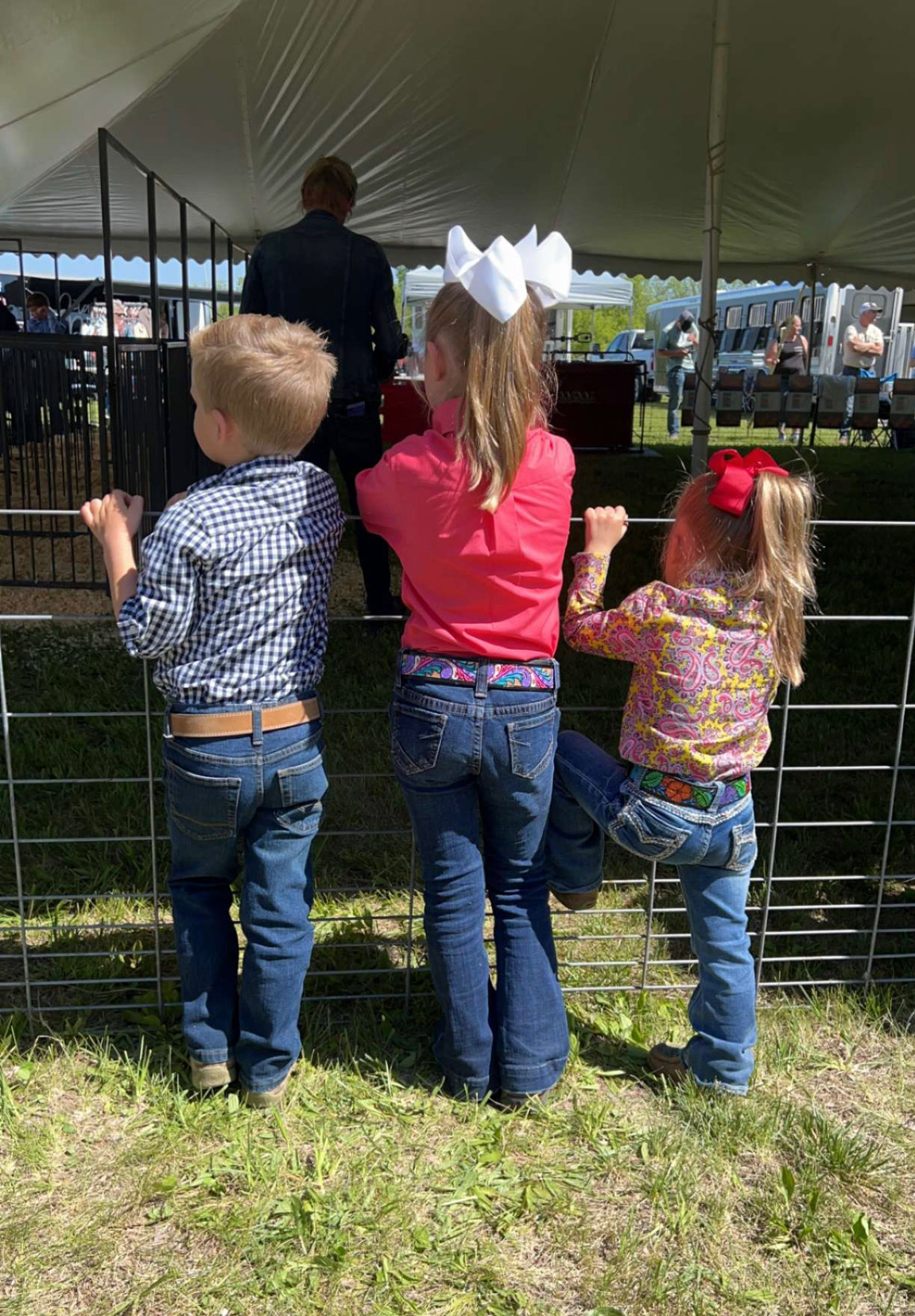
Q&A with Pat Albright — Michigan Pork Producers Association Board Member
The show pig industry is built on passion, dedication and a commitment to excellence both in and out of the ring. It's about more than just winning ribbons and banners — it’s about shaping the future for the next generation. A Seat at the Table is a monthly series that highlights show pig producers who are stepping into leadership roles within their state associations. These individuals are actively shaping the future of the industry through their passion for agriculture and their commitment to making a lasting impact.
This month, we’re excited to feature Pat Albright from Michigan. As a longtime board member of the Michigan Pork Producers Association and a dedicated show pig producer, Pat brings a valuable dual perspective to leadership — connecting the show ring to the commercial pork world. Here’s a conversation with Pat about his journey, his work and why being involved in leadership matters.
Q: ShowPig
Welcome, Pat! Thank you so much for joining us today and being a part of our Seat at the Table series. To get started, can you introduce yourself and tell us a little bit about your operation?
A: Pat Albright
I’m Pat Albright, a pork producer from Coldwater, Michigan. My wife, son, and I run our farm together, and our daughter pitches in occasionally too. We raise show pigs, commercial pigs, and niche market pigs like Berkshires. We also grow crops and finish pigs on contract for a larger company.
For about 20 years, we owned a meat processing plant, but our farm roots go back much further. We started with commercial production in the '80s, and as our son Doug got more involved in the show pig world, our business evolved with him. That transition—and branching into niche marketing—really helped us stay in the pork industry long-term.

Q: ShowPig
How did you first become involved in your state association?
A: Pat Albright
I’ve been on the Michigan Pork Producers Board for more than 25 years. In Michigan, we don’t have the board turnover like you might see in Iowa or Illinois, so I’ve had the chance to stay involved long-term.
I joined in high school thanks to a really active county organization, and eventually got elected to the state board. I've always believed that if you're not at the table, you're on the menu, and that’s what keeps me engaged. Even as our farm shifted more into the show pig space, I stayed involved in leadership.
Q: ShowPig
You’ve helped bring show pig representation to the table—why is that important to you?
A: Pat Albright
We’ve always raised pigs of some kind, but when we started selling more show pigs, I found myself in a unique position. I was already on the board, so I didn’t have to convince anyone I belonged.
At the time, there was still some hesitation in the commercial industry about show pigs, mostly around health risks and different production priorities. But by being present and part of the conversation, I was able to show how serious we are about biosecurity, herd health and long-term sustainability.
It’s also helped bridge that gap between commercial and show pig sectors. Our state association now supports youth shows and jackpots. That wouldn’t have happened a decade ago. So I’m proud of that progress.
Q: ShowPig
That’s great to hear. How has your experience as a show pig producer helped prepare you for leadership?
A: Pat Albright
Raising show pigs teaches you to be hands-on. You’re marketing your own product, working directly with families and solving problems daily. That’s really valuable in leadership because it helps you understand people, not just pigs.
Also, the kids in this space. They grow up knowing how to manage pigs, make decisions, treat animals and advocate for agriculture. Many of them go on to careers in ag, and they bring real knowledge to the table. They're not just hobbyists—they’re the future workforce.
We’ve also had to take biosecurity seriously. We’ve sold pigs into more than 20 states, and we’ve dealt with all the regulations, health papers and visitor protocols. That kind of experience really matters when you're talking about national animal health policy.
Q: ShowPig
You mentioned youth shows. Tell us about your work with the MI Pigs Jackpot Series.
A: Pat Albright
My wife and I have helped run the MI Pigs Jackpot Series in Michigan for over 20 years. Recently, we brought it under the umbrella of the Michigan Pork Producers Association. That was a big win.
Now the state association is directly supporting youth involved in the show pig industry. We’ve created scholarships, programs and opportunities that build future leaders. It's one of the most rewarding things I’ve been part of.

Q: ShowPig
How has your leadership role changed your view of the show pig industry?
A: Pat Albright
It’s made me realize just how much misunderstanding there used to be between sectors. Early on, commercial producers didn’t always trust show pig folks. But being at the table, I’ve been able to explain what we do and that we’re doing it the right way.
There have been moments in policy conversations where, if I hadn’t been there, things might’ve gone differently for the show pig side. That’s why it’s so important to have representation. We have to advocate for ourselves, and that starts with being in the room.
Q: ShowPig
That’s so powerful! What advice would you give to producers thinking about taking on a leadership role?
A: Pat Albright
Get involved. Don’t be afraid to show up at a meeting or raise your hand. The industry needs your voice, especially if you’re in the show pig world.
You’ll gain perspective on the bigger issues—like foreign animal disease, traceability, and policy—and you’ll learn that we all have more in common than we think. Whether you're running a 20-sow show pig herd or a 2,000-sow commercial operation, we're all in this together.
You don’t have to agree on everything, but we’ve got to work together. The more people with different backgrounds who get involved, the stronger our industry will be.

Q: ShowPig
Well said. Thank you so much, Pat, for sharing your story and your insight. We really appreciate you being part of this series.
A: Pat Albright
Thanks, Abi. I appreciate the chance to be part of the conversation.
Thank you, Pat, for your time and dedication. Your work on both sectors of the pork industry is helping move the entire sector forward — one conversation at a time.





















